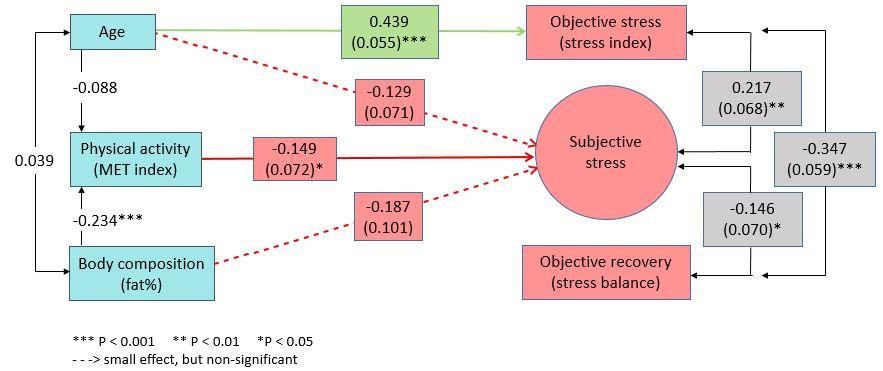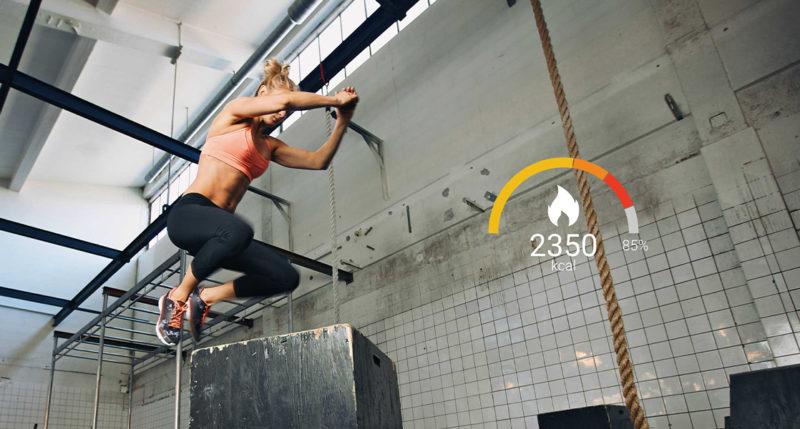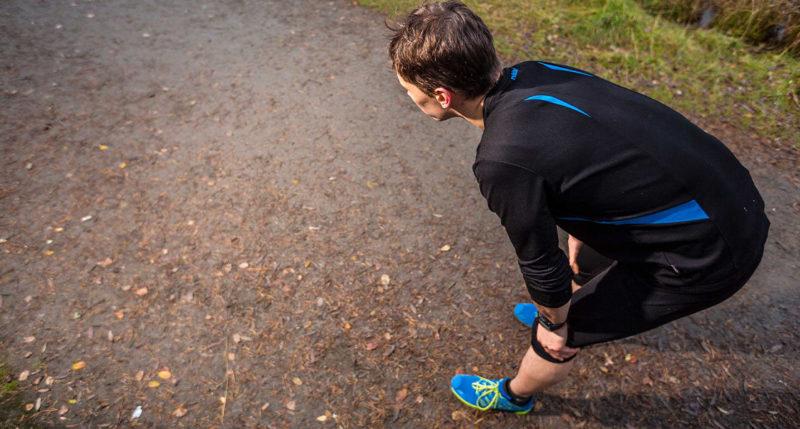
Tiina Föhr
- M.Sc. in health sciences/sports medicine, physiotherapist
- Currently writing her doctoral thesis on the relationship between leisure-time physical activity and work stress with special reference to heart rate variability analyses
- The doctor’s thesis consist of four sub studies of which the second is presented below
Previously, I presented the results of the first sub study of my doctoral thesis. This time I’m happy to present the findings of the second one. Most stress assessment methods primarily focus on an individual’s subjective perception of stress. However, it is also possible to utilize objective measures of stress. Heart rate variability (HRV) has gained importance as a technique to explore the function of autonomic nervous system, and the assessment of HRV has been widely used in order to diagnose both psychological and physiological loading and disorders. In the text, subjective stress refers to individual’s perceived stress, measured by a questionnaire as for objective stress/recovery refers to objectively measured HRV-based stress.
The aim of the second sub study of my doctoral thesis was to investigate how subjective stress is associated with HRV-based objective stress and recovery on workdays. Another aim was to investigate how physical activity, body composition, and age are associated with subjective stress, objective stress, and recovery. The study group of this cross-sectional study comprised of overweight and psychologically distressed working-age individuals (n =221, 87.3% women). Objective stress and recovery were based on HRV recordings over 1–3 workdays. These recordings were executed using a measurement device, Bodyguard 2, developed by Firstbeat.
There Is an Association However, Subjective and Objective Stress Differ from Each Other
The results showed that subjective self-reported stress was moderately associated with objective physiological stress, but they were also apparently affected by different factors. For instance, older age was associated with higher objective stress whereas age had small reverse effect on subjective stress. Higher level of physical activity was found to be associated with lower subjective stress. Additionally, body fat percentage had small inverse effect on subjective stress. These findings are presented below in Figure 1.

Figure 1. Sex-adjusted associations of age, physical activity, and body composition with subjective stress, with objective stress, and with recovery. The presented values are standardized model results (estimate and standard error). Residual correlation and standard error between subjective stress and objective stress and recovery, and correlations between age, physical activity, and body composition are also presented.
Subjective and Objective Measures Are Complementary to Each Other
The results of the first sub study of my doctoral thesis showed that both higher level of physical activity and better body composition were associated with lower objective stress. Among the overweight and mainly inactive participants of this second sub study, these associations were not found. So, to sum up the results from the two sub studies of my doctoral thesis, subjective and objective stress can be affected differently by the same factor, such as body composition.
Development of the objective stress assessment methods is warranted. However, the goal of this development work should not be to develop an objective measure that measures something that could be asked. People tend to think that objective measures of stress reflect individuals’ subjective stress, but that is not the fundamental idea. As I presented, there is an association but these two aspects of stress are apparently affected by different factors. The findings of my study together with previous studies indicate that subjective assessment cannot be totally replaced by objective methods in stress assessment. Further, it would be optimal to complement self-report measures with objective measures. The third sub study of my doctoral thesis pointed out, that subjective and objective stress react differently in long-term. But I’ll tell about these interesting findings more detailed next time.
For more detailed information: Föhr et al.: J Occup Med Toxicol 2015 10:39
Do you want to know whether the stress you feel corresponds to the actual stress your body experiences?
You might also be interested in

Firstbeat Gets Calorie Counts Right
Accurate calorie counts provide insight for better personal health decisions and reveal the effectiveness of weight management efforts.

Smarter Endurance Training with Heart Rate Variability Guidance
The ability to predict how a particular individual will react to a training protocol in advance is a critical step in getting training prescriptions right.

